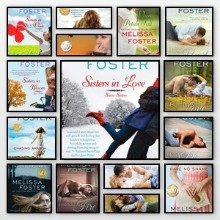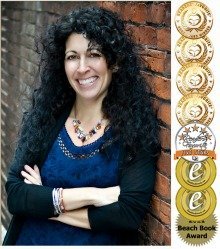
Who doesn’t love a macho, handsome character? Add a little emotion and you’ve got a winner—you hope.
Creating believable men is something that I truly enjoy. Having grown up with six brothers in a testosterone-driven world, all I had to do was pull from memories. Wrap those memories into my daily life with five sons, and the macho, emotional character is born.
Here’s a gross generality for you, and feel free to slam me, as I’m a blatantly honest person and I write what I feel. Males are visceral and females are emotionally driven (author dodges tomatoes as their thrown in her direction). I’ve learned from growing up (and old) with males, that when they’re upset, they let you know why, in very clear—and not always tactful—ways.
I’m hungry. I’m bored. You pissed me off. I’ve overwhelmed. I hate that blue dress, it makes your butt look huge. Women, on the other hand, tend to be covetous of the driving force behind their discord—this lessens, I think, with age, but it’s still there. [Dialogue taking place in the woman’s head] I hope he notices that I’m ignoring him. Doesn’t he see anger written all over my face? I’m mad, but you should know why I’m mad—I shouldn’t have to tell you.
Growing up in a male-driven household helped me to understand the differences between male and females. I also think that perhaps I am wired more like a male—as I’m very straightforward and don’t enjoy drama—cutting to the chase will always get you further in my little world then hoping I notice something is awry.
There seems to be a downside to developing strong male characters—one that I didn’t see coming. I have no issues with bad language when used at appropriate times. Bad words happen—in my house, they’re even commonplace among the males (like how I talk about males like they’re a different species?). For some unknown reason, curse words have a life of their own. They convey wrath and despair, hatred and can even be used as qualifiers for happy events.
I’ve discovered recently, though, that not all readers have the same take as I do on bad language. Some expect bad language to be left out of emotional scenes all together, while others see the visceral side of those scenes and feel they’re completely appropriate. This is the downside for me—I have to write what my characters feel, and oftentimes, they feel something that only a curse word will convey. I apologize to my readers, because I do care what you think and what you enjoy reading, but ultimately I have to be true to my characters, and saying, “That darn guy,” simply doesn’t cut it when a guy is angry.
Tell me readers, what’s your take on curse words in books?
***
Melissa Foster is a Bestselling Kindle Author and mother to 6. You can find her Website, Facebook,Twitter, and FBFanpage by clicking the links. Come Chat atThe Women's Nestparat of the WoMen's Literary Cafe, Where readers and authors unite! (for men & women)
Visit Melissa's Events Page for details on the next stop on her blog tour.
Check out Melissa's books on Amazon
Article written for A Book A Girl A Journey Blogspot





 Melissa Foster is a New York Time and USA Today bestselling and award-winning author. She writes contemporary romance, new adult, contemporary women's fiction, suspense, and historical fiction with emotionally compelling characters that stay with you long after you turn the last page.
Melissa Foster is a New York Time and USA Today bestselling and award-winning author. She writes contemporary romance, new adult, contemporary women's fiction, suspense, and historical fiction with emotionally compelling characters that stay with you long after you turn the last page.